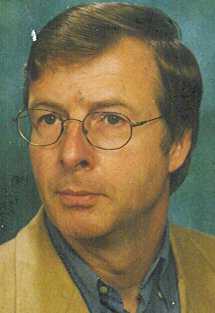Joost van Baak, born in Utrecht, the Netherlands, in 1947. Ph.D. from the University of Groningen. Professor of Russian Literature at the University of Groningen
Fellow (1 September 1998 – 30 June 1999)
The starting point of my study is the idea of the house as an anthropological universal, and at the same time, as an image which reflects a historically and culturally specific view of the world. Literature – art in general – is a powerful medium for the expression of such images. Apart from being the setting of everyday life, the house also functions as the vehicle for a variety of symbolical meanings and values. On the basis of the Indo-European basic house lexicon and the inventory of mythical house motifs a house myth is (re)constructed: a programme in which the anthropologically relevant house motifs find a place. Thus, we can distinguish the universal idea of the domus, literally embodying the bonds between people: dynastically (as a family), architecturally, emotionally, as a point of orientation and identification.
In Russian literature of the nineteenth and twentieth century, the elements of the house myth can be traced in a variety of transformations and recurrent symbolic functions. The domus ideal, for example, can be recognised in the utopian projections of the estate world of nineteenth-century realism, and again, but from a totally different perspective, in the work of twentieth-century avant-garde authors. On the other hand, the absence, or loss, of the domus idea can activate different house motifs, in different symbolic transformations. During modernism, evidently a catastrophic period for Russia, the house characteristically becomes a powerful literary image expressing the existential crisis of the individual.
